This post is sponsored by Blue Apron.
Since completing our kitchen remodel almost two years ago, we've received so many questions about keeping our cookware clean, since much of it is in view on our open shelving. Here's one we received recently from one of our readers, Courtney:
"I've only been at this adulting thing for a couple of years (I turned 27 last week), but my inability to keep my cookware in a reasonable condition feels like my biggest failure. I've had cheap, expensive and in-between pots, pans and knives in nearly every type available and I am always frustrated with stains that refuse to come out, scrapes on the interior coating (which I immediately throw away out of fear of chemicals leaching into my food), rust, handles getting loose or breaking, etc. What am I doing wrong?!"
So for Courtney and everyone else out there who has the same question, we want to share a few details of the three more popular cooking materials, and how we keep ours clean and functional. Because we cook a lot.

Caring for Nonstick Cookware
It's the case with all cookware, but especially nonstick, that keeping it in good condition starts with knowing its limits. Some view nonstick cookware as a way to avoid using oils and fats in cooking. Some see it as a way to make life easier and never worry about food sticking. But the suggested uses of nonstick cookware are pretty narrow, essentially including sweating vegetables and cooking eggs.

Nonstick cookware should not be used in an oven, and should always include oil of some kind. If you're trying to keep your fat intake low, opt for cooking spray or heart-healthy fats like extra virgin olive. Add the oil when the pan is cool, and allow it to heat with the pan. Once you've had oil in the pan, you can add more as needed, depending on what you're cooking. Nonstick pans are not recommended for deep frying or long-cooking of highly acidic foods, like tomatoes. When cooking tomatoes, 5-8 minutes is about as long as you want to keep them in a nonstick pan, so if you're making a garden pasta, for example, add the tomatoes toward the end. Use another material for long-cooking sauces like marinara.

Nonstick cookware also doesn't care for the harsh chemicals of a dishwasher. To keep the coating strong and scratch free, use only plastic and silicone utensils, and opt for a non-abrasive scrubbing sponge. I just use the purple or pink Scotch Brite brand sponges and they work great.

I often won't even use dish soap, but if there are stuck on messes, a small drop of mild, liquid detergent works great.
Cleaning Stainless Steel Pots & Pans
One of the reasons so many people turn to nonstick cookware so much is because they're frustrated with food that stubbornly sticks to stainless steel (that's a mouthful). If it's hard to scrape off, it's hard to wash off, and we all just end up with a stack of stainless steel on our counters and in our sink, "soaking" for like 3 or 4 days. But the key to combatting this is not turning to another material, but understanding what it takes to prevent food from sticking to stainless steel. Answer? Preheating.

Remember these words when it comes to stainless steel: "Cold oil, hot pan." I mentioned this trick several years ago in a post about roasting potatoes, but it applies to so many things, and it's the same for sheet pans, frying pans and pots. Heat the cookware first, and add room temperature oil just before adding your food. This one trick will save so much frustration, both when it's time to take the food off the pan, and when it's time to wash the pan.
For a roasting pan, I like to coat my food with a small amount of oil, either using a bowl or zip top bag, before adding it to the preheated pan.

Once cooked, simply take the food off and allow the pan to cool before washing. Use a microfiber cloth to rub any spots off the outside of your cookware to keep them shiny. Here is an Anolon stainless steel pot I've used at least 5 times a week for nearly two years, and it shines like the day I bought it.

Now, with this I want to also address the fact that there are some food stains on stainless steel that don't come out. At least not without crazy harsh chemicals that I wouldn't want to use on something I'm putting my food in. So part of this is also recognizing which stains are actually impacting the quality of your food. A little discoloration in a pan is normal, and will come and go as you use your cookware. But if there's something black and flaky, that's the stuff you need to get rid of, even if it takes a bit of extra scrubbing.
Caring for Cast Iron Cookware
Cast iron is probably the most versatile and sturdy kinds of cookware, and historically has been viewed as the easiest to maintain. The way humans live has changed drastically over the centuries, and we now use soap to clean everything. But cast iron does not like soap, so we see it as different and demanding. But really, it's all about understanding the material.

Cast iron is porous, which means it takes on parts of whatever sits in it. That means that flavor from every burger, chicken breast, steak, vegetable, cobbler, and cake you cook in it, sticks around for awhile. Unfortunately, this is also true with nonfood things, like soap. But a well-cared-for cast iron pan will clean easily, with little work and no soap required.

How you clean cast iron depends on what the food leaves behind. If there is nothing stuck to the pan, simply wipe it out with paper towel. If you find there is some stuck on food or even sticky grease, the more commonly recommended procedure is to add coarse salt to the pan and scrub with a rag until the pieces come off. For me, that often takes a bit too long and doesn't come as clean as I'd like, so I follow these steps:
1. Wipe out any excess liquid or grease.

2. Fill the bottom with water and bring to a simmer until stuck on bits come off easily.

3. Drain water and wipe dry. Add cooking oil to the pan and put it back on medium low heat for 15 minutes.

4. Allow the pan to cool, then wipe out excess oil with paper towel and store.

The most important thing for cast iron is that it has the seasoning, which is essentially a layer of oil that protects it from oxidation and rust. It also keeps the cookware naturally non-stick.


Your cookware are your tools in the kitchen. Having tools that are in good working order is one of the best things you can do to enjoy the time you spend in your kitchen, and the food that comes out of it.
And of course the other side of that equation is knowing what to cook! We've used Blue Apron for years now and can't say enough about how much we love it (the White Cheddar Pork Burgers prepared in this post were so legit). Blue Apron sends all of the farm-fresh ingredients you need, perfectly portioned, along with recipes, to make amazing meals in your own home. The meals can be prepared in 40 minutes or less and almost every one of them introduces us to new ingredients we can't find locally, or new ways of using ingredients that we can.
Right now, Blue Apron is offering three free meals to the first 50 of our readers who make their first order. CLICK HERE to get claim it and be sure to let us know what you think when you try it! We've been sharing this service with our readers for years now and love hearing your favorite things about it.

Leave a Reply
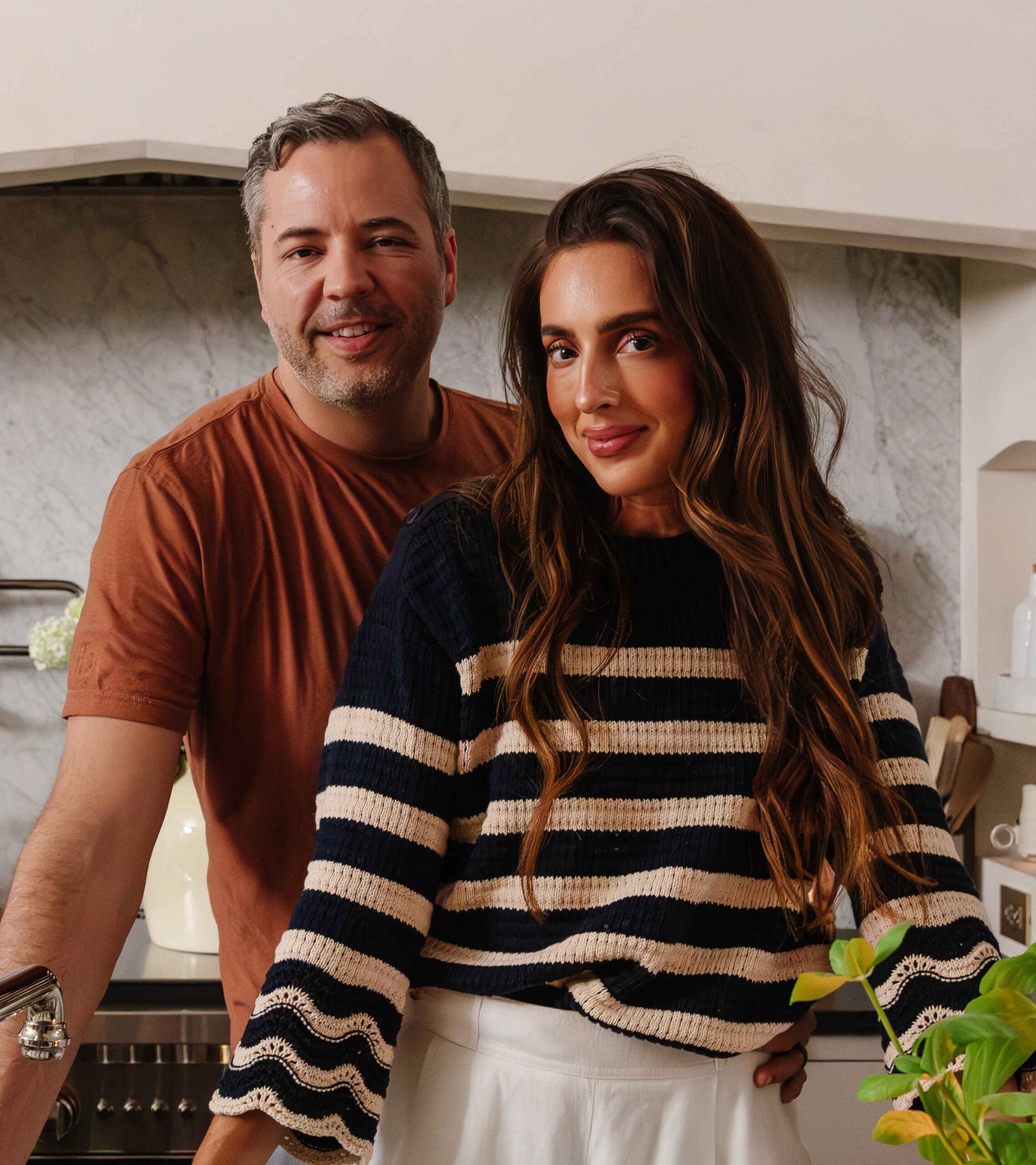
WE'RE CHRIS + JULIA

Portfolio
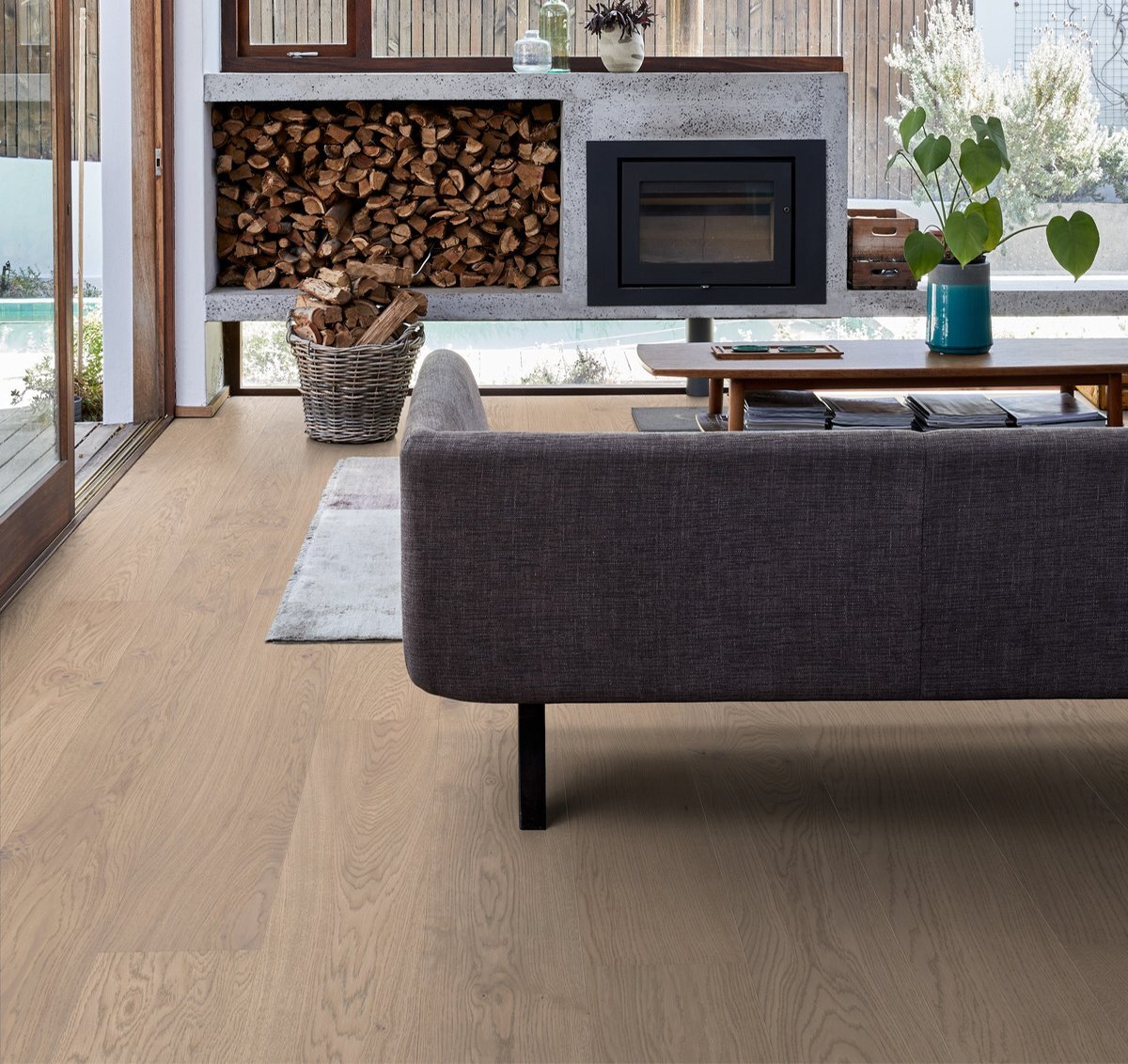
Projects
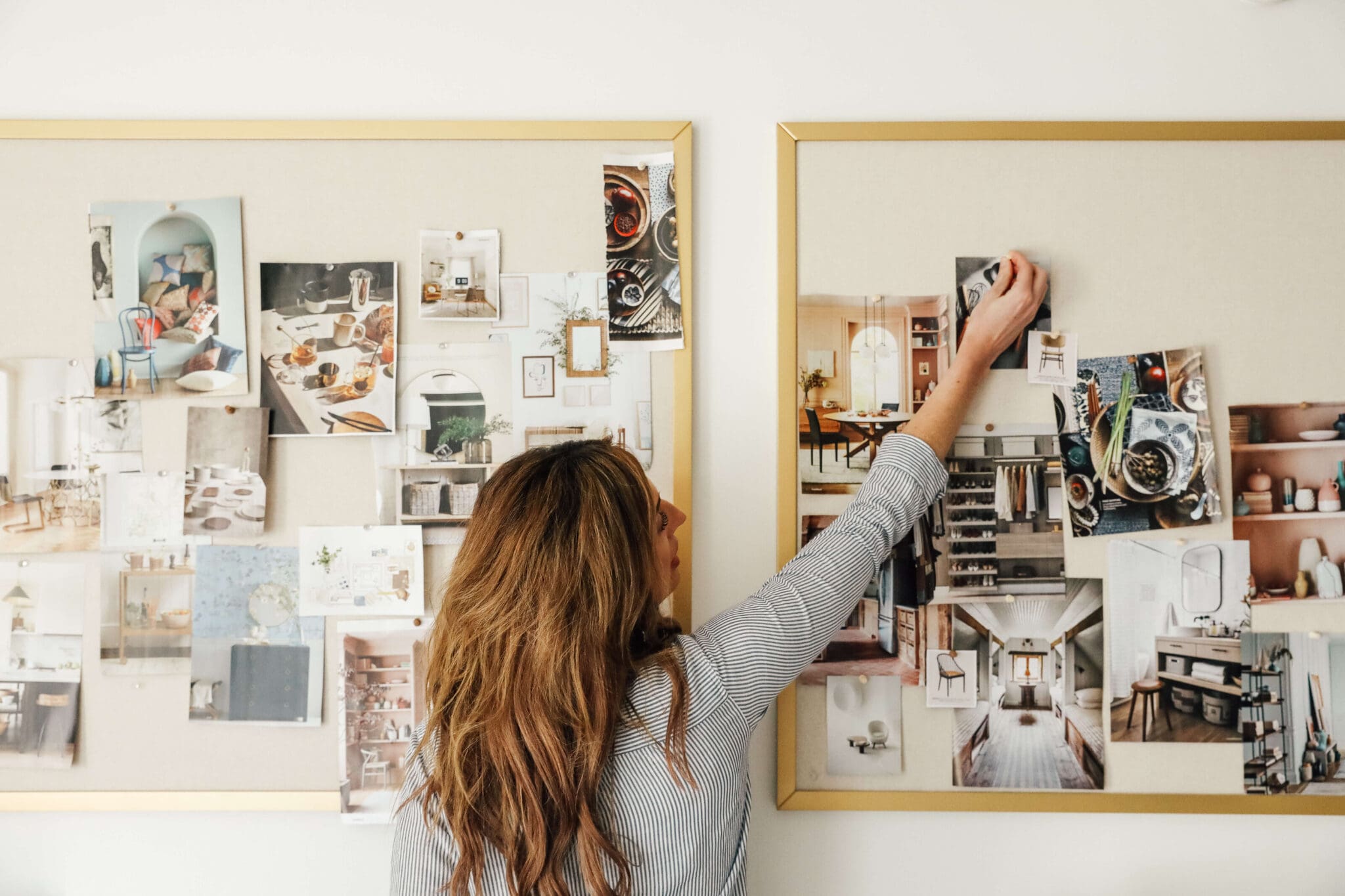


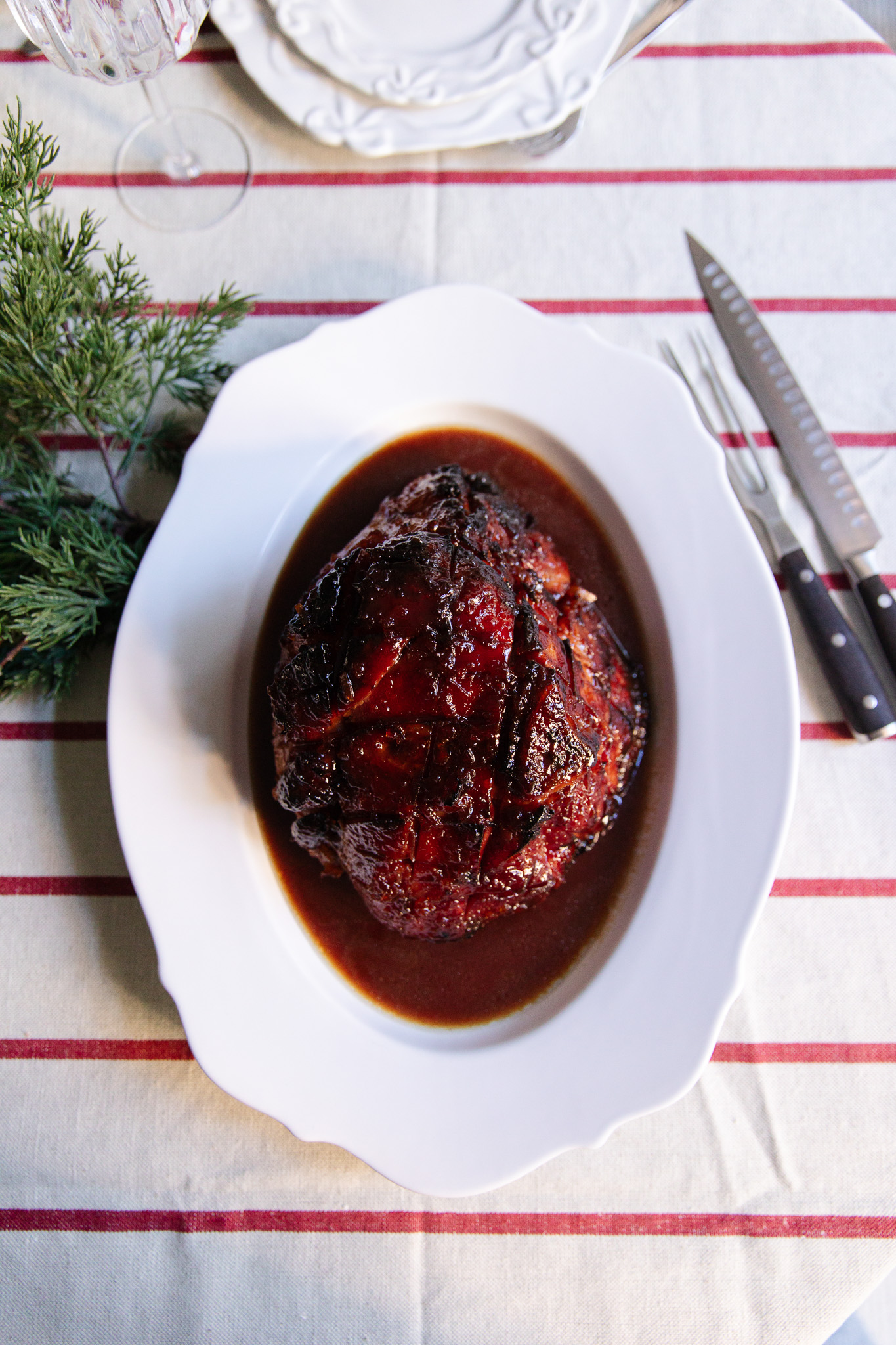
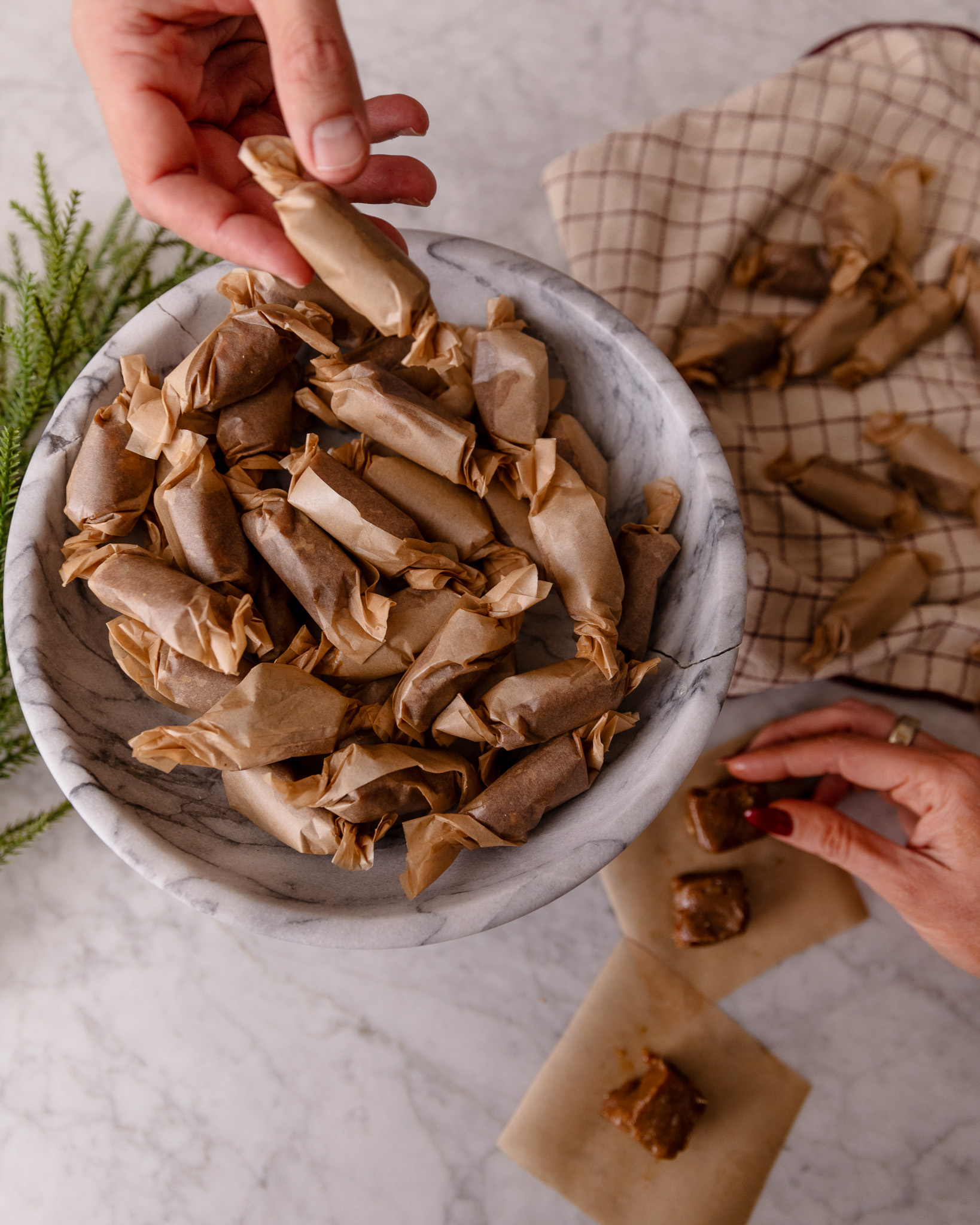

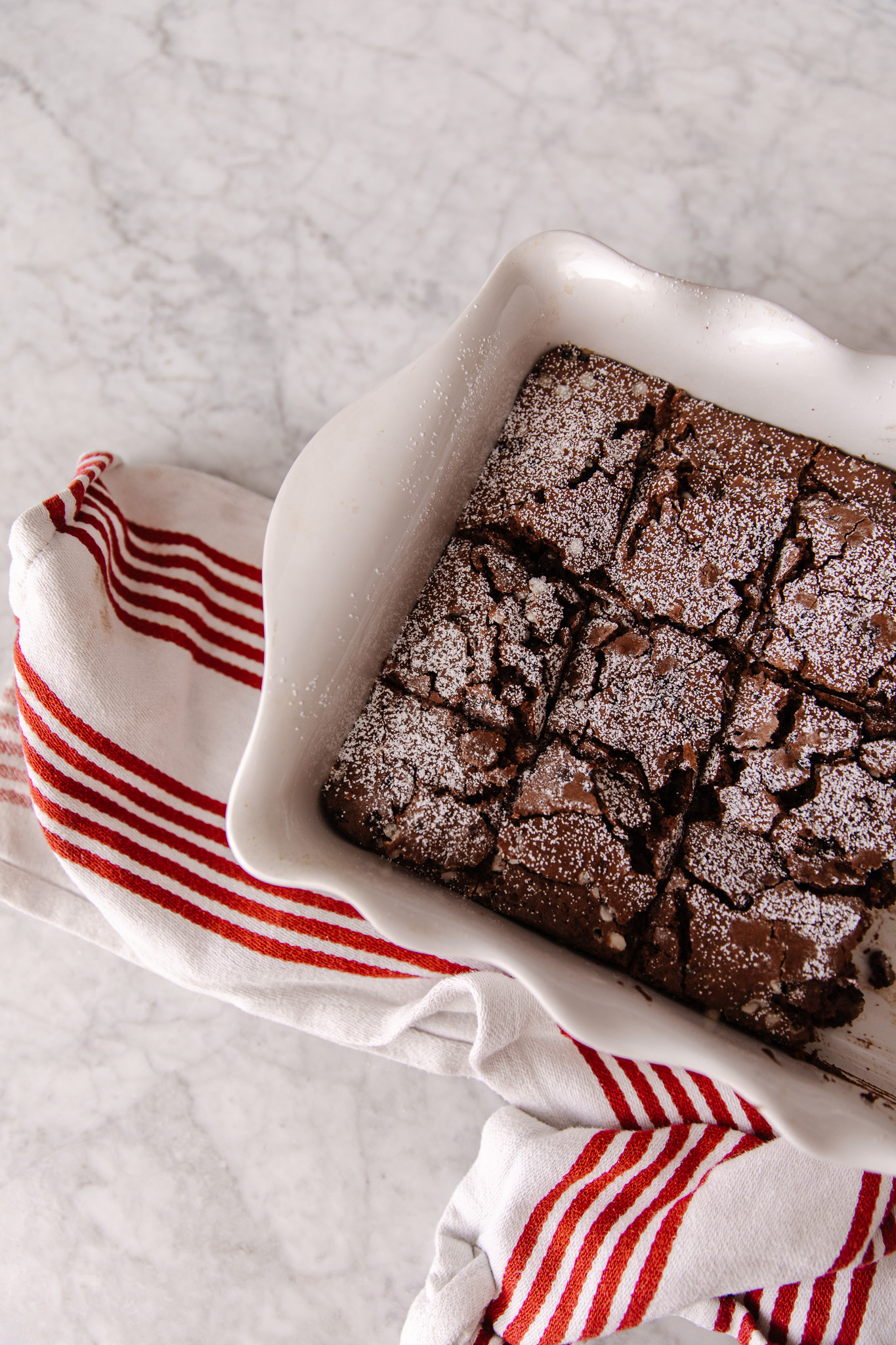
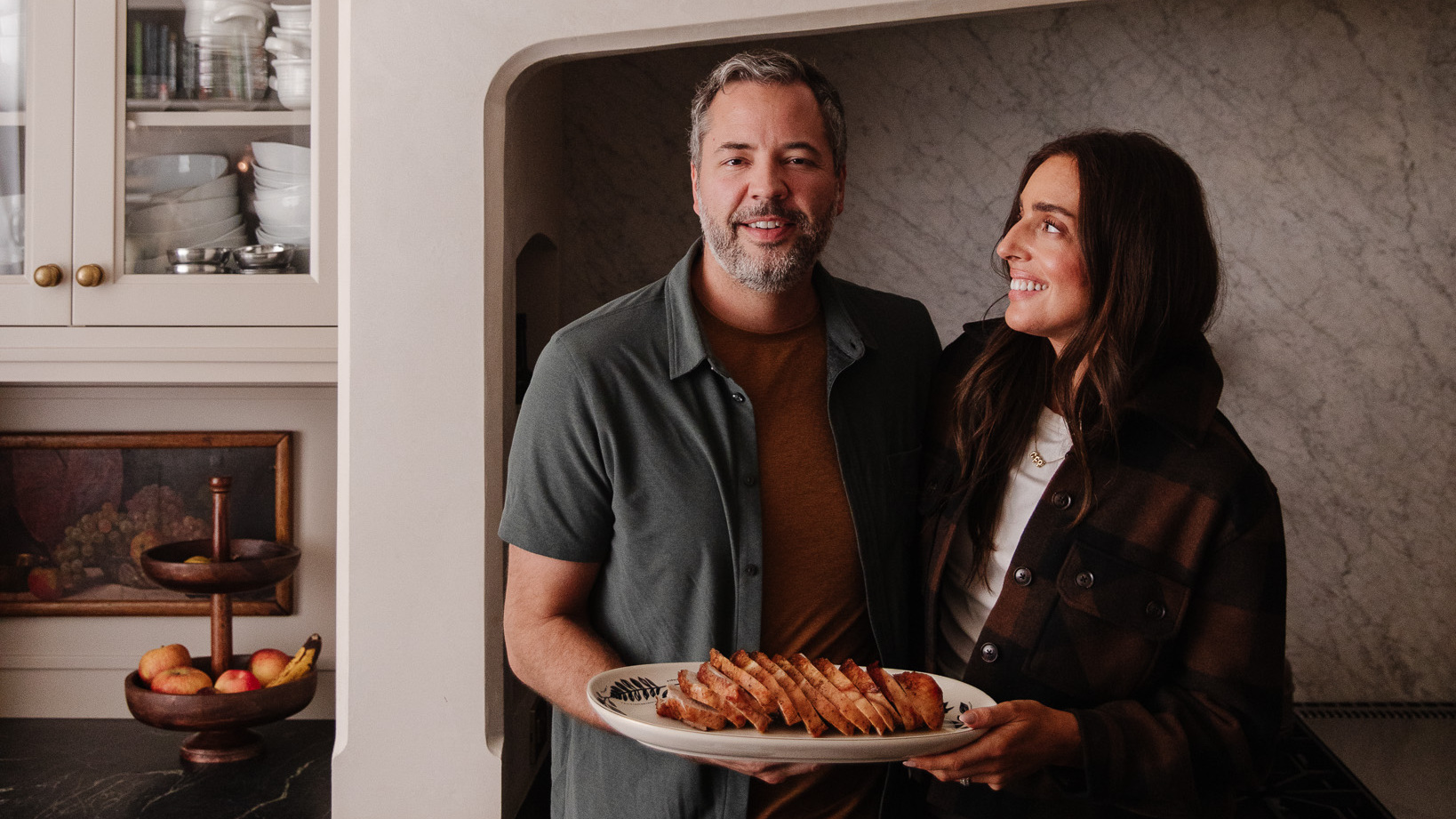


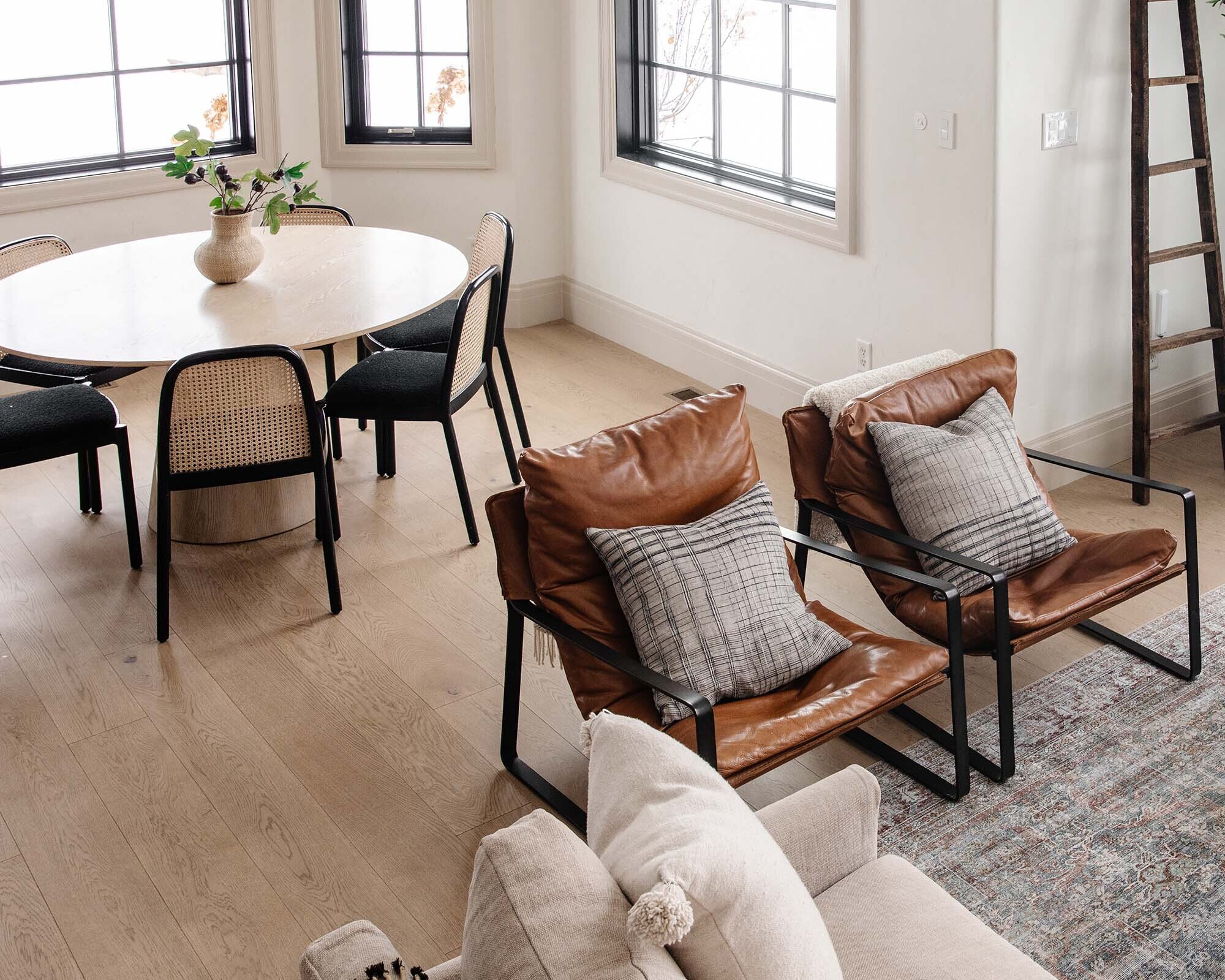

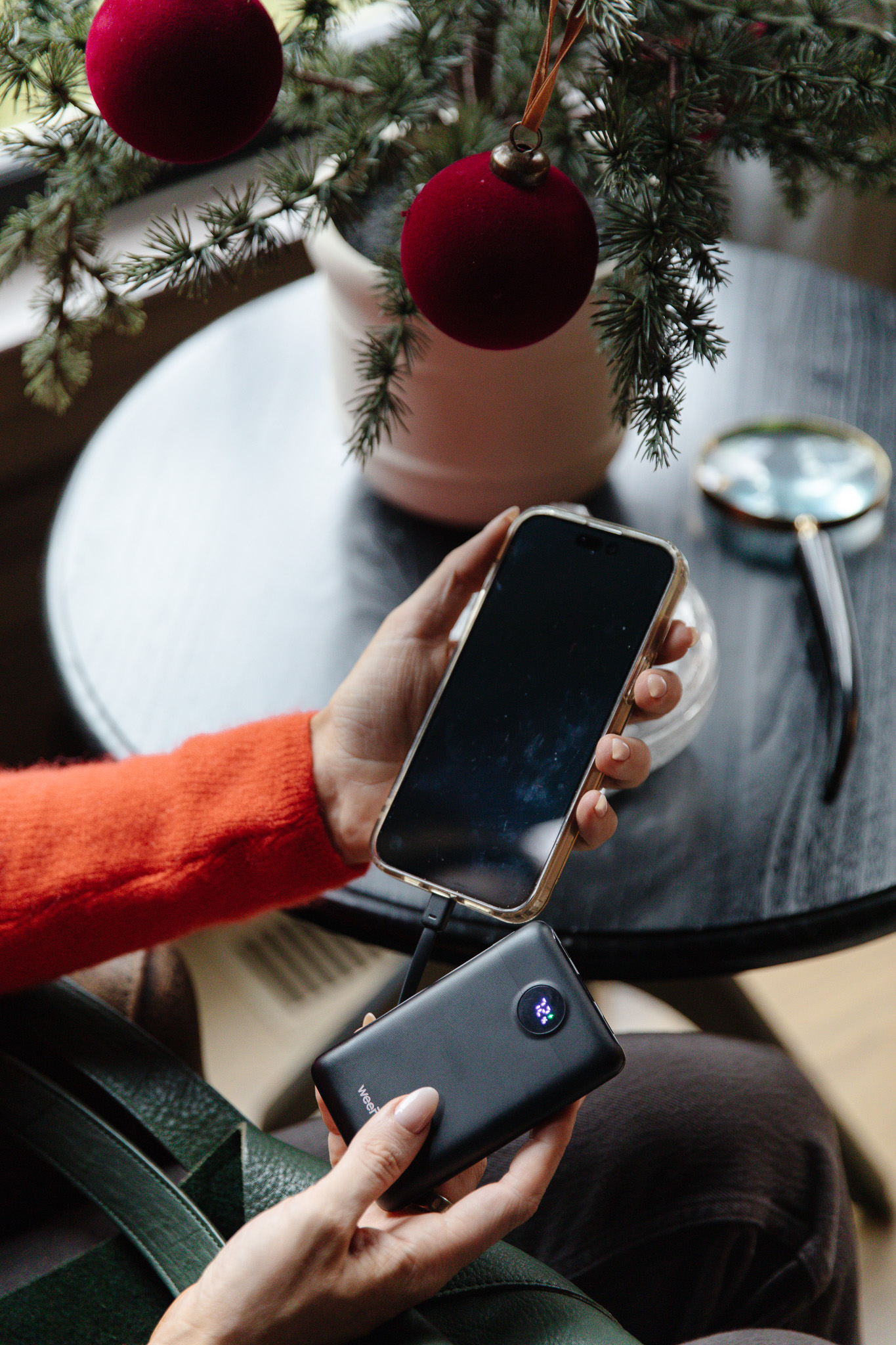
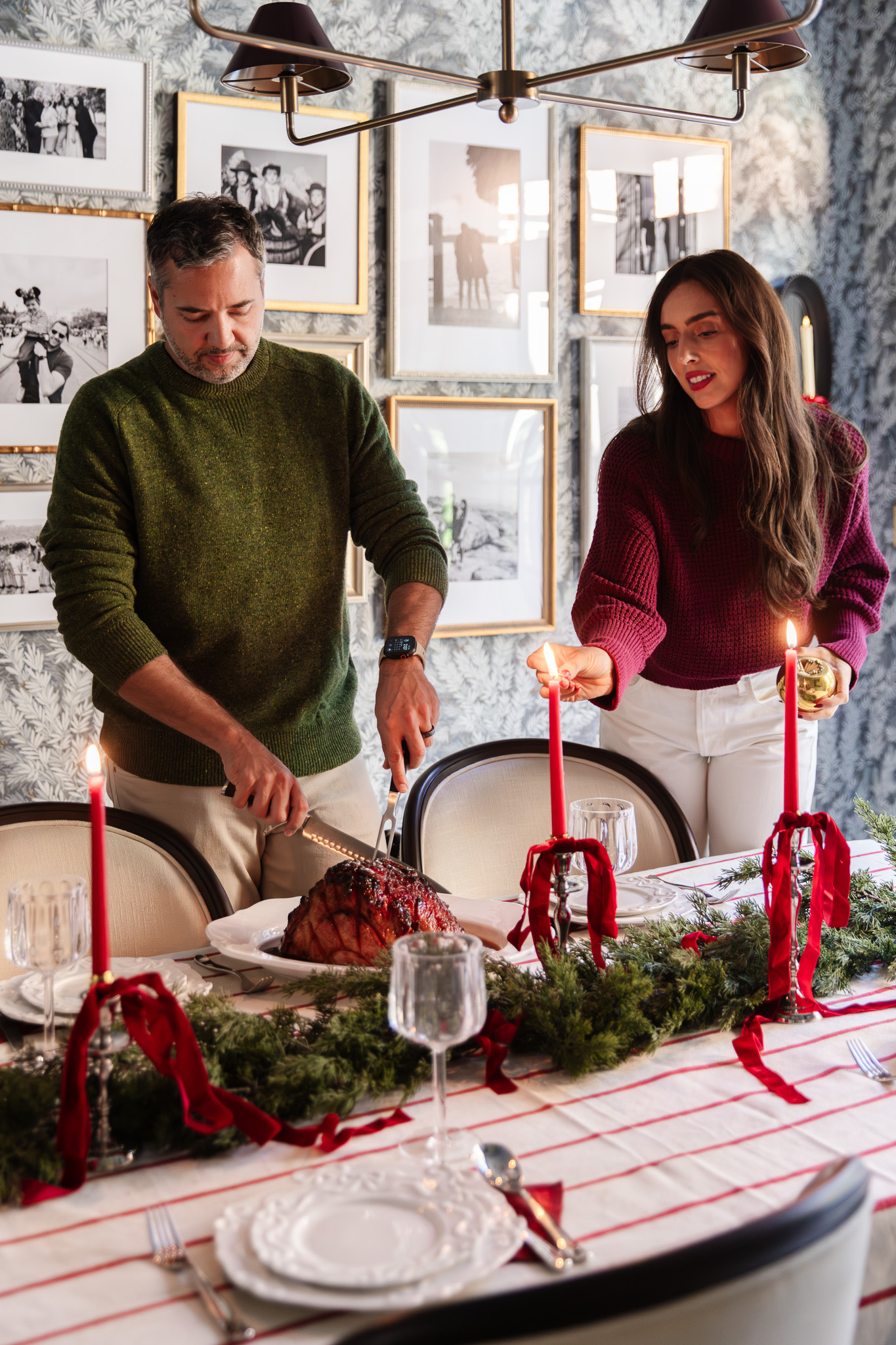
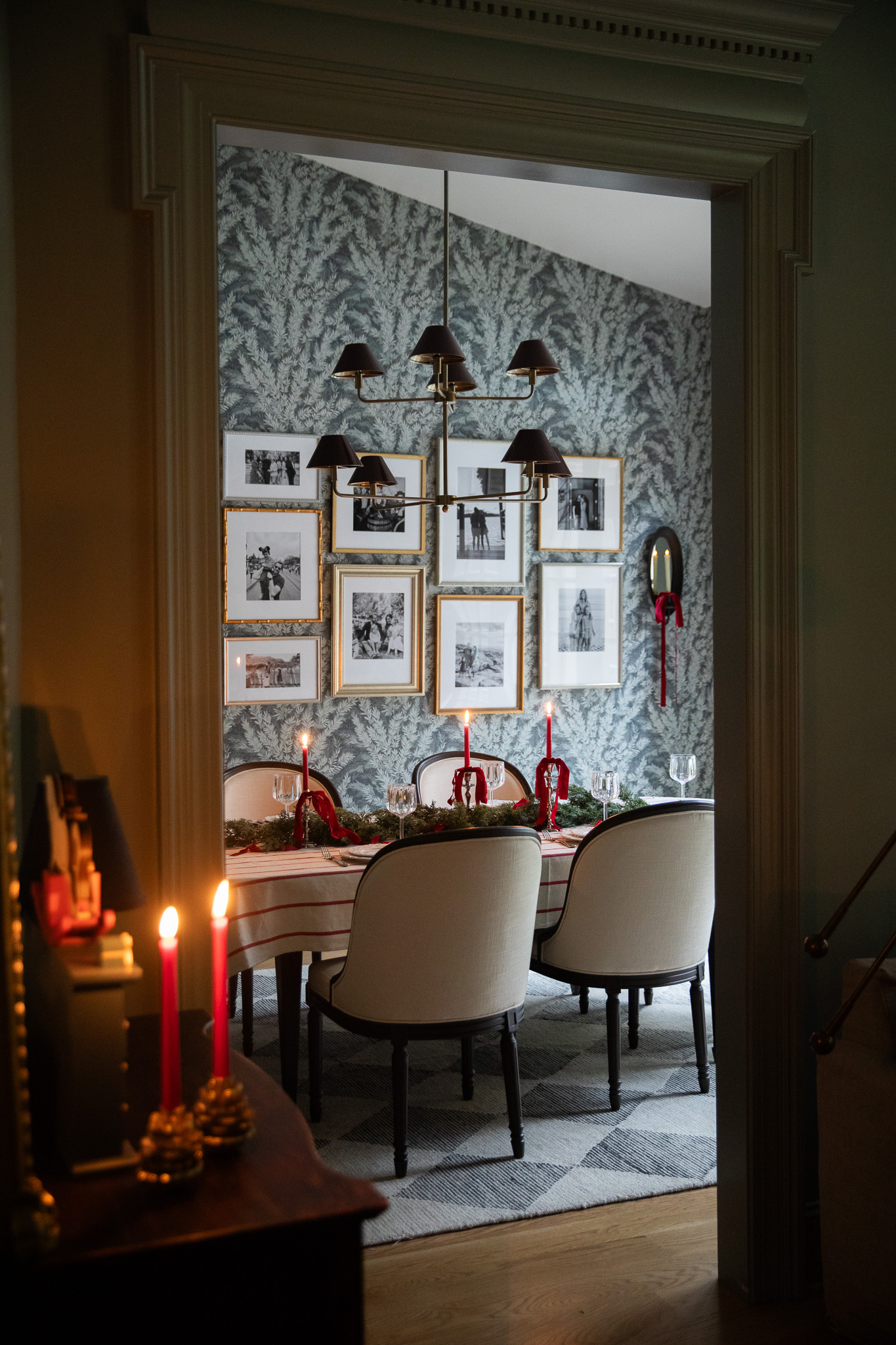
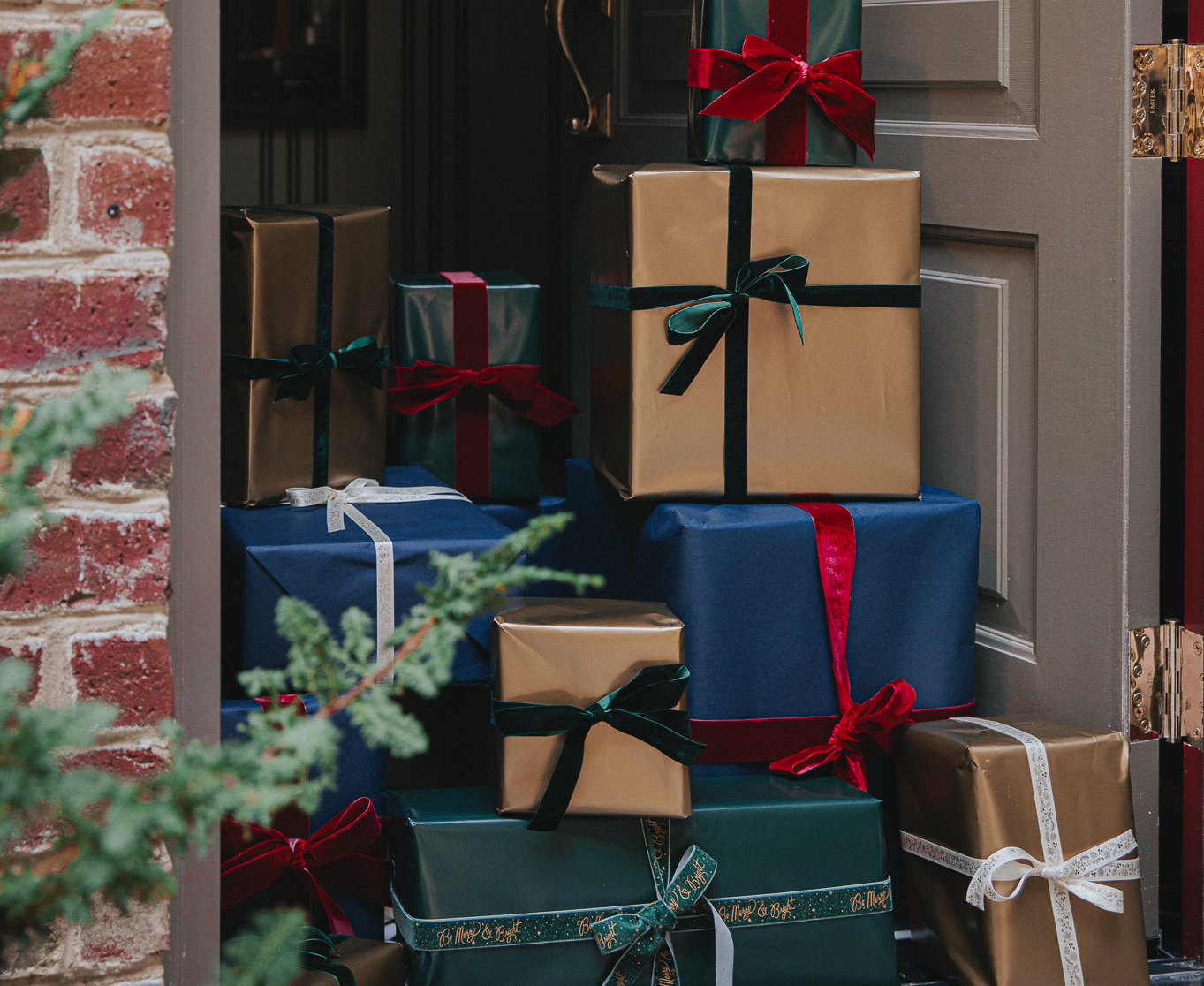
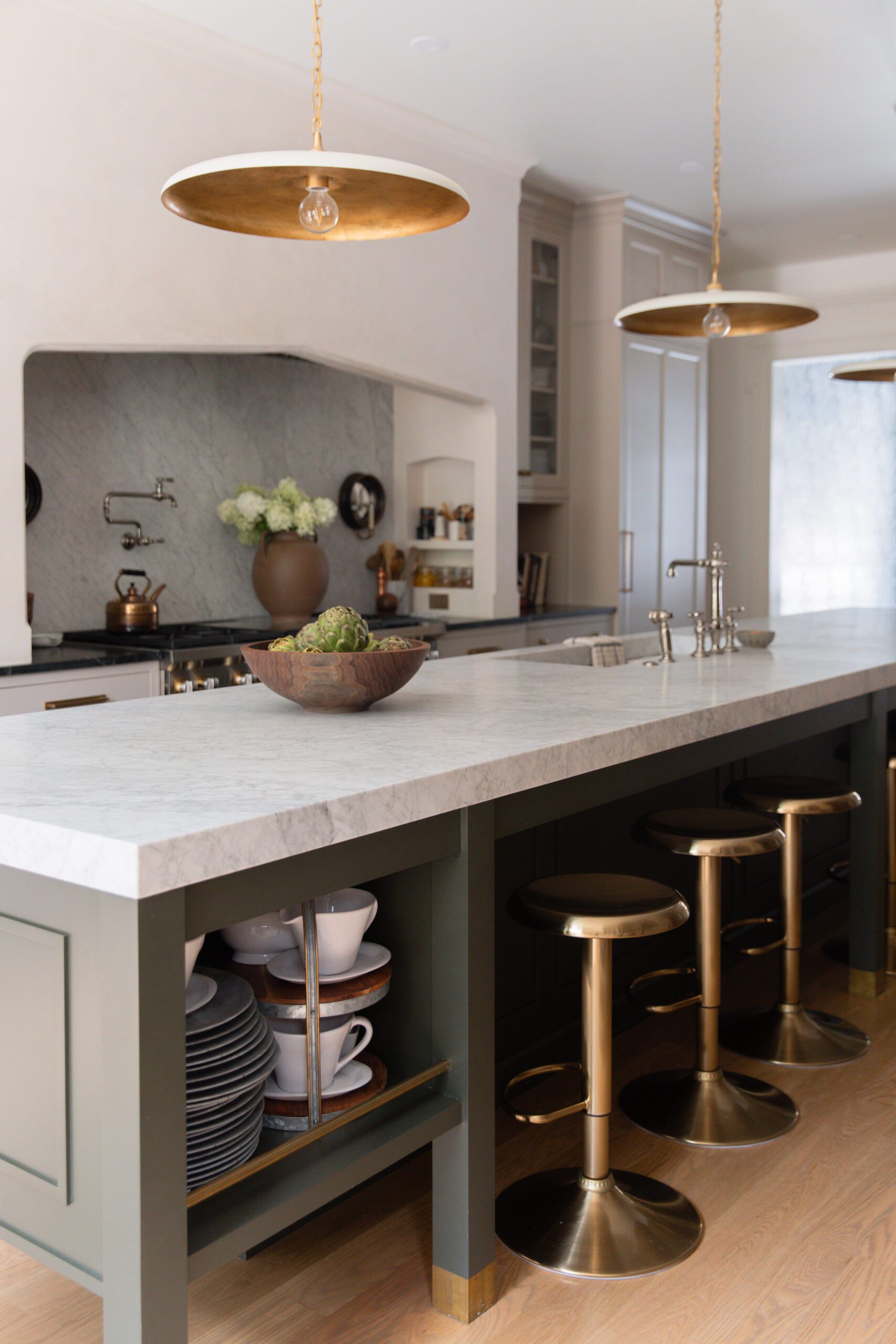

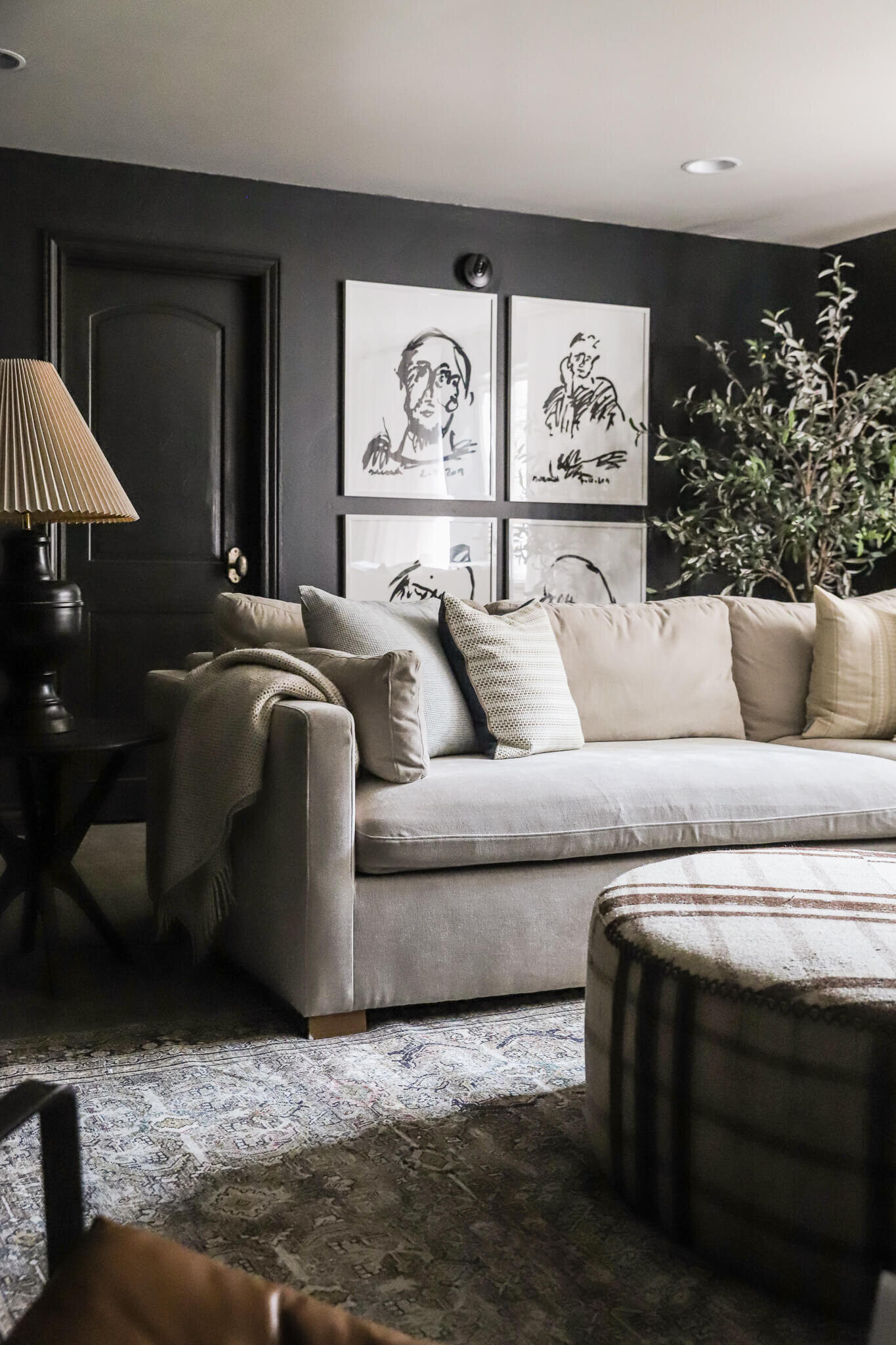


Thank you for this informative post. The craze about nonstick pans led me to buying a T-fall hard anodized one. It has served me well until it started chipping. I was worried so much about my safety until I stopped using it.
On inquiry, I learnt that my misgiving was using the pan in an oven. But still, I would want to get your opinion about nonstick/Teflon safety. Thank you
Thank you for the informative post! what brand is best for cast iron cookware
Staub is my favorite, with Le Creuset as a close second. Martha Stewart from Macy’s is the best budget option IMO
I've referred to this post so many times, after not really knowing how to care for my cast iron skillet now I follow this method and it's always in beautiful condition. Thank you for sharing this with us.
Thanks for the informative post!
I feel like I really want to invest in a cast iron pan, but am so scared that I'm going to chip my quartz counters if I accidentally knock it against when I'm washing or putting it away. Is that weird?
Not at all. Though, I find if you're mindful of it (which you are) then you're a lot less likely to have it happen.
I am looking at upgrading our cookware. What brands or specific pans would you recommend purchasing?
We are big fans of the Anolon Nouvelle Copper Stainless Steel and non-stick line.
I've never heard of the "cold oil, hot pan" trick for stainless steel. Thanks for the great tip!
Thank you so much for this post. I have a question regarding the iron cast of your stove, how do you clean that? Thanks in advance
What I really wanted to say, is how do you clean your stove?
So I kind of delayed reading this post because it didn't seem interesting, but then it contained SUCH useful information-- especially about using stainless steel! I'm really tempted to ditch all my non-stick now. Thanks!
Hey Chris, Thanks for this awesome post! I definitely do not use the range of pots and pans that you do, may need to get myself a stainless pot or two!
Question 1: I love my non-stick pans, I use them a lot. I got some high quality, thick pans from Calphalon, but have been frustrated with warping. I have never put them in the dishwasher, and (unfortunately) cook on a electric glass top. Any thoughts on why they would warp, and how to prevent it?
Question 2: how often do you use your pot filler? Seems like most of the "designed" kitchens online have them, but I can't really picture using it enough to make it worth the cost. I love to cook and we're scheming up a kitchen remodel, so you'r input would be appreciated.
I'll answer the second question first by saying, I have never needed a pot filler, and don't need one now. But, I use it every day, multiple times a day. It's definitely not a necessity, but it's surprising how convenient it makes things I never would have thought about.
For the first question, sometimes pans can warp if they are hot and you cool them off under running water. I'm not sure if that's happening, but if so that's a likely culprit. The rapid cooling that happens when the water hits the pan causes the metal to contract and warp, often rounding the bottom.
These are great tips! I've used stainless and cast iron for years now, and I love them. Even so, a couple of these ideas are new to me, like pre-heating a baking sheet before adding the food. I'm excited to upgrade a few of my older, not-so-nice skillets and pots when we move into our new house, and I'll be going for materials that will hold up!
Great tips on stainless and cast iron, which still seem to foil me even though I know the "principles" of how to use them. When I worked at Sur La Table I got extensive training on nonstick pans, and the key to keeping them nice is similar to the main tip of stainless: patiently preheat the pan. Also, keep the heat at no higher than "5" or whatever is the halfway point on your stove. Blasting the pan with high heat (like many impatient cooks are prone to do) is one of the things that affects the nonstick coating's adhesion. I also keep mine out of the dishwasher. My Scanpan is doing great after 3 years! Oh, also, I was also trained that using nonstick sprays is actually one of the -fastest- ways to destroy a nonstick skillet or nonstick cookie sheet.
Thanks Staci! Very valuable insight.
I was ready to spring for a more expensive non-stick fry pan but I'm a very impatient cook. I tend to throw the stove on high to get things going, then turn it down. Any suggestions of what type of fry pan for eggs and hash browns I should purchase or should I stick with the less expensive non-stick ones?
These ones from Calphalon are on super sale today. And these are the ones I use, so they're pretty great.
So, I know this is very much in advance, but I was wondering, since you entertain a lot and always host a big fantastic Halloween party, that perhaps you would wanna make a post about how to throw a fool proof Halloween party, sometime during the fall? I've been reading about your parties and it has got me into an urge of having one of my own. But I haven't got a clue where to start? Who do I invite? What activites do I prepare? What about food and drinks? And decorations? I'm not a big entertainer but sometimes I wish I was...
You bet! I'll put this on our list and we'll do something for the fall. One tip I'll share here - all of the best parties lack an itinerary, so don't worry about planning things to fill up time. Create an environment where conversation can thrive, and your guests will find the time passes far quicker than they wish it would. That's for adults. Now kids on the other hand, there are definitely some things you can have in place, and I'll make sure we share some ideas. Thanks for the request!
Thank you!! ????
I adore my cast iron pan and just recently bought a second pan. Made the mistake of buying a "preseasoned" one and unfortunately the first meal was disastrous, so I stripped the seasoning and applied my own and I use it on a weekly basis every since. I'm glad there are more people cooking with cast iron lately and I think it's because of bloggers like you showing that it doesn't have to be scary!
As for stainless steel - I don't tend to have much of a problem with cooking sheets (I work by the 'cold oil hot pan' method also) but any brand of pan I've bought I've had consistent issues with food sticking, no matter how long I warm the pan or what oil I use. I've seen some references to stainless steel needing seasoned like cast iron - have you found this to be the case?
I've never heard of seasoning stainless steel. My frying pans get some stains on the outside here and there, and they come and go as I use the cookware. For me what has helped the most is making sure the pan is free of any grease before I put it on the heat, and wiping things off if they spill out.
Had to pop in to say I really appreciated that while this post was sponsored, it was extremely informative and one I will be bookmarking! I always appreciate when a sponsored post still includes meaningful content, and this was one of the best I've seen lately.
Having grown up using cast iron, I don't find it difficult to use or clean. Having not grown up using non-stick, I'm suspicious of it, as I am right to be, as it does wear over time. I find I never have to worry about eating non-stick chemicals - it is easy, just don't have any non-stick pans in your home. I have thought about buying one of those newish skillets that has a ceramic interior, though - they seem healthy and I think are non-stick.
I bought my cast iron set of three skillets 4 decades ago when I got my first apartment, and they are still going strong. (I have a newer one that is deeper, but I've learned not to make tomato sauce in it, as the acid does wear the seasoning coat off.) And, contrary to advice, I use a drop of soap on my cast iron skillets often, whenever I find it will help clean them - I just don't leave them soak, in soap or in water - and the seasoning stays on just fine, and I don't taste soap (though I don't use a strong detergent dish soap, but a mild one, as my hands couldn't handle that anyway.) I do use olive oil liberally (or sometimes butter) in them whenever I cook, which is always keeping the seasoning coat strong, and builds it back really quickly if I do wear if off by burning something.
I have some stainless steel pots, which again I grew up with and have no problem cleaning, unless I forget something cooking and cook up a real mess of burned food, which happens occasionally. Then, I really have to scrub. I am left with discoloration in the bottom of some pots, the kind that have thicker bottoms with an aluminum or other metal embedded within the layers of stainless steel (which the ones I used growing up didn't not have - they just had the copper bottoms, and the inside was never stained by anything.)
I'm not sure if what I have in the pans I've burned is discoloration, or if it is some of aluminum underneath showing through a destroyed layer of stainless steel. I don't use aluminum pans, as I know that it also wears off into food, so I am hoping that what I am seeing is just discolored stainless steel, and that the stainless steel inside hasn't worn off. If I was sure it was aluminum, I'd throw out the pot. I'm going to use the suggestion that someone made to clean them with a paste of baking soda and see if that works. Does anyone know whether the stainless steel on the inside of these pots can wear off from burning food, or am I just looking at discolored stainless steel?
Sent this to my husband as he is also the main cook in our household. He was a little like "Duh, Elyse I kind of know all this" (well that makes one of us haha) but thanks for the content for us non-dominant cooks (ie me!). He did, however, remark that it was nice to see a guy in the kitchen on a blog!
Where do you typically get your cookware? Matt won't buy any unless it's been approved by America's Test Kitchen. It's 12 bucks a year and is like the 'consumer reports' of cookware, they test everything imaginable. They even test recipes and input science to explain how to make dishes better. We watch the show every Saturday on PBS. #dorks. Anyways, wondering if you have any good sources as well! Great post! Thanks!
Almost all of my stuff is Anolon. They specialize in nonstick, but they have a couple of stainless steel lines that are primo. I love their Nouvelle lines, because of the copper core base and the high quality.
And I love America's Test Kitchen. Some of the claims they make I think are a bit over the top and unnecessary, but it's all fun to watch anyway.
Such a helpful post! I've been trying to cut my pan supply down to only cast iron, and stainless steel. This is just what I needed to read to help me make the jump.
Love these tips, especially the info about non-stick pans. I never knew yous shouldn't cook things that are very acidic or that it shouldn't go in the dishwasher! Very good to know!
How would you recommend cleaning and maintaining an enamelware pot or pan? I have some of my dad's old Le Creuset enamelware and I'm never sure if I should treat it like cast iron or if its safe to use soap since it has the enamel coating. Suggestions?
I suggest hand washing with soap and a non-abrasive scrubbing sponge for the porcelain enamel coatings. I have a Lodge cast iron pot that is porcelain coated and it's held up really well to that, and doesn't take on any other flavors.
Great, thanks Chris!
I've found soaking my stainless steel pots with a baking soda paste and a little scrubbing takes almost all discoloration and yuckies off! But I love the idea of preheating the pan!! Thanks for the post, I've really wanted cast iron but have been fearful of the commitment ????
Where are there brackets for your open shelves from? I can't seem to find it in any of your old posts...
The post about the shelves is here, but you can see the brackets here.
You're so smart!
This was a really great post. Thank you so much. Have you ever done, or would you consider a post on what pans, utensils, etc a well appointed kitchen needs?
These are my essentials. Can't live without them. :)
Awesome tips... love this post!
This was so helpful!! I didn't know any of this and I feel better knowing that my mistakes were mostly with the cooking process, not the cleaning process. Thank you!!!
What brand is the beautiful blue cast iron skillet you used?
It's from the Anolon Vesta Cast Iron line (found here). It's my favorite pan in the world.
Thanks for the tips. What do you do to keep the enamel on the outside of your cast iron pans clean?
The biggest culprit for the outside getting gross is me putting the pan on the heat when it's dirty. Our larger cast iron pots are on the top shelf of our open shelving, and they get some grease splatter - not a lot but more than any of our other cookware. Before I use those I give them a quick rinse and dry on the outside to get off any grease that may burn on once it hits the heat.
The other culprit is food bubbling over and cooking on while I'm cooking. For that, if it's something more than water, I'll quickly kill the heat, wipe it off with paper towel and turn the heat back on. If it's just a little water boiling over I don't usually worry about it.
I've never been happier to read a post about pans in my life. I've been doing it all wrong! You mentioned with the non-stick pans you still need to use oil or cooking spray. Is that the same for the cast iron?
Yes, you'll want to use oil in pretty much every type of cookware. If it's a matter of health, I always suggest using a fresh extra virgin olive oil, which has a lot of beneficial fats that are definitely not an enemy to weight loss.
"I've been doing it all wrong!" pretty much sums up my adult life, but at least we now have the cookware situation figured out.
Single most informative and helpful post I've read since following the blog two years ago. Thank you for sharing!!
LOVE this post - thank you! I'm going to share it with my husband, who does most of the cooking for our family, too. :)
Oh no! I'm worried now. We just invested in new Calpholon non stick cookware-we use it for pretty much everything -without oil ???? I've found oil leaves a sticky residue/spray ruins them. It makes the best eggs/omlettes oil free and cleans up with ease. Is it unhealthy or dangerous to do this? Side note---I'm relatively new to your blog and podcast -and have never left a comment- LOVE them both -kept up the amazing work and best of luck with sweet baby girl #3!
I feel like Calphalon makes a line of nonstick that isn't teflon-coated. You'll want to check and see if that's yours - if so I'm not sure the specifics. If yours are teflon coated, when brand new they seem like they work great without oil, but the coating weakens over time and food can stick more, and once it starts sticking, without the oil, the coating will start to flake. Eggs are especially bad for this. If you accidentally leave eggs in a nonstick pan for too long, they can completely rip off the nonstick coating.
I've never seen stickiness from oil or spray on a nonstick pan, so I'm not sure what is causing that. I use extra virgin olive oil in mine and it seems to wipe out pretty well, but perhaps your pans are coated with something else.
i too have an assortment of (newer) Calphalon nonstick cookware, and i wish i could post a picture here. if i could, i'd take a pic of the bottom of one of my pans. it says "DISHWASHER SAFE" on the bottom. i don't have a dishwasher, but if i did, i'd use it.
also, i use oil in my pans all the time. plenty of hot water and (sorry about the plug here!) palmolive oxy dish soap does a great job getting them clean. i find i have more difficulty keeping the outsides of the pans looking spiffy. people with gas stoves might know what i'm talking about, but the burner grates can sometimes mean for laminated fats on the exterior of the pan. i use (again, a plug) Bon-Ami and a kitchen scrubbie and they come clean without too much fuss.
another thing - according to their website, Calphalon nonstick pans are oven safe to 450F. i've used them in the oven, although not at that high a temperature. the pans are all going on 2 years old and show no signs of chipping, cracking, etc.
Thanks for the input, Julia! Most teflon pans say they're dishwasher safe, but it's been my experience the coating doesn't perform as well once it's been through a few cycles. I notice more sticking on the edges and I have to use a tad more oil than I did when I first bought the pans. It sounds like your pans have held up really well - I'll have to try out some Calphalon and see the difference.